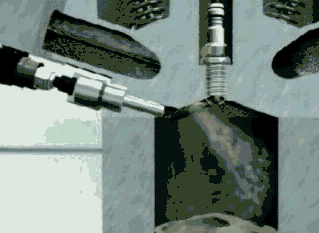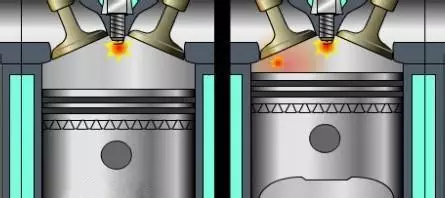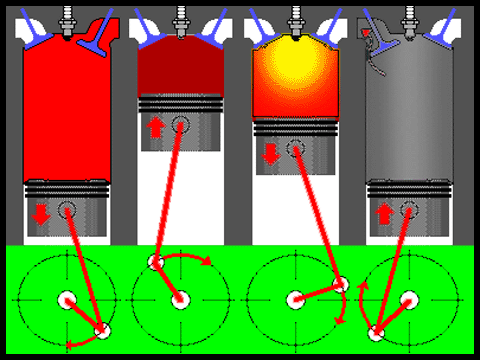Engine knock is a common problem. Many friends who don't know much about it are confused by this word. In fact, engine knock is not complicated, as long as the cause of knock is clear, the problem can be solved with the right medicine. Let's take you to analyze the causes of engine knock, hoping to be helpful to you.

● What is knock
The combustion of gasoline engine is very complicated, so it needs to have quite accurate design and control. If there is a slight control mistake or abnormality, it will cause abnormal combustion, and "knock" is an abnormal combustion. Simply put, knocking is a pressure disorder in the combustion chamber caused by abnormal combustion.
● cause of knock
Before talking about the cause of knock, you must first understand two things.
First, the mixture burns in the combustion chamber, and its flame spreads around in the form of "wave" from the ignition point, so it takes a short period of time from ignition to complete combustion of oil and gas.
Second, although oil and gas need to be ignited by spark plugs, too high temperature and high pressure environment will also cause spontaneous combustion of oil and gas.

General knocking is because the flame in the combustion chamber has not yet spread completely after the oil and gas are ignited. The remote unburned oil and gas is self-igniting due to high temperature or high pressure, and its flame impacts with normal flame of combustion to generate great pressure, making the engine produce abnormal tapping.
● The main causes of knocking are as follows:
I. Ignition angle is too advanced:
In order to enable the piston to obtain power immediately upon entering the power stroke after the end of the compression upper dead center, it is usually ignited before the piston reaches the upper dead center (because it takes a period of time from ignition to complete combustion). However, too early ignition will cause most of the oil and gas to burn when the piston is still in the compression stroke. At this time, the unburned oil and gas will bear great pressure and spontaneous combustion, resulting in knocking.
II. Excessive carbon deposition of the engine:
Excessive carbon deposition in the combustion chamber of the engine will not only increase the compression ratio (generate high pressure), but also generate high temperature hot spots on the carbon deposition surface, causing the engine to knock.

III. Engine temperature is too high:
If the engine is too hot, the intake temperature is too high, or the cooling water circulation of the engine is poor, which will cause the engine to knock at high temperature.
IV. Incorrect air-fuel ratio:
Too thin fuel-air mixing ratio will increase the combustion temperature, while the increase in combustion temperature will increase the engine temperature, which is of course easy to knock.
V. Fuel octane number is too low:
The octane number is the index of fuel anti-knock. The higher the octane number, the stronger the anti-knock.
For engines with high compression ratio, the pressure of the combustion chamber is relatively high. If fuel oil with low shock resistance is used, knock will easily occur.